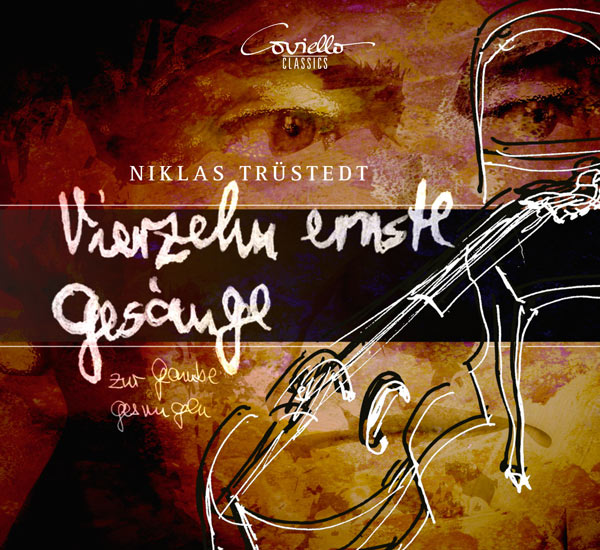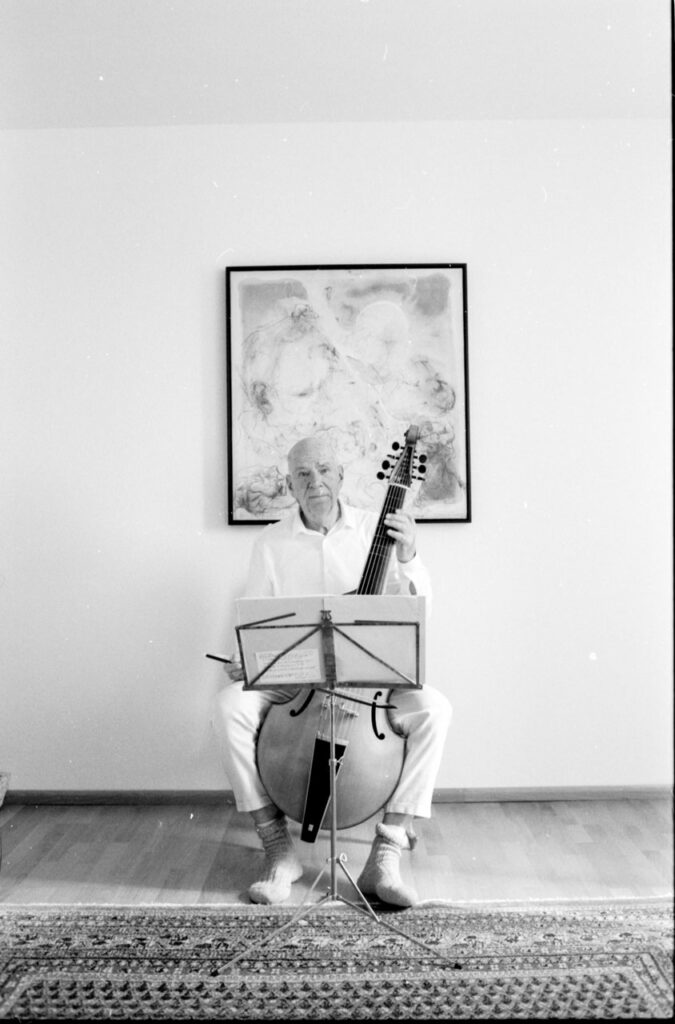
Vierzehn ernste Gesänge
Niklas Trüstedt ⋅ viola da gamba
Edition: Authentic Performance
Booklet: de / en
Media: CD / HD Download
There are plenty of prominent examples, and have been for thousands of years – from Orpheus in ancient mythology to the troubadours of the Middle Ages to numerous stars of our day: playing an instrument to accompany oneself while singing is one of the oldest forms of performance in the history of music. Today, most people associate the guitar in all conceivable forms as the obvious instrument for this; in his new recording, Niklas Trüstedt takes up a tradition from the Renaissance and early Baroque: Here, the viola da gamba was considered one of the instruments best suited for vocal accompaniment. Trüstedt impressively proves that this assessment is still completely true today. With great sensitivity, he allows his voice to merge with the fine sound of the viola da gamba in a wide-ranging repertoire that extends to arrangements of Schubert and Brahms songs. Of course, the intimate connoisseur of his instrument also writes his own compositions.
Translated with www.DeepL.com/Translator (free version)
| 1. | Tobias Hume (1569-1645) Humorous Pavin |
3:31 |
| 2. | Guillaume de Mauchaut (+1377) Douce dame |
2:54 |
| 3. | Andreas Gryphius (1616-1664) Mein sind die Tage nicht |
2:37 |
| 4. | Friedrich Wilhelm Marpurg (1718-1795) Lebe, liebe, trinke, lärme |
1:22 |
| 5. | Constantin Christian Dedekind (1628-1715) Wir sind ein Traum der Zeiten |
2:24 |
| 6. | Speronter (Joh. Sieg. Scholze) (1705-1750) Alles eilt zum Untergange |
1:27 |
| 7. | Anonymus von J. Haydn überliefert Bonny Barbara Allan | 1:45 |
| 8. | Henry Purcell (1659-1695) Strike The Viol |
1:48 |
| 9. | Franz Schubert (1797-1828) Der Tod und das Mädchen |
2:37 |
| 10. | Johannes Brahms (1833-1897) Denn es gehet dem Menschen wie dem Vieh |
1:48 |
| 11. | Johannes Brahms O Tod, wie bitter bist du |
2:59 |
| 12. | Adam Krieger (1725-1666) Nun sich der Tag geendet hat |
1:56 |
| 13. | Niklas Trüstedt (*1944) Ach ich |
2:34 |
| 14. | Nachspiel | 2:12 |
| Total time: | 32:02 |

